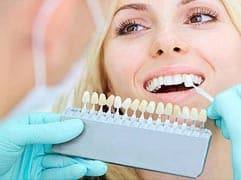Call (515) 277-6358 to schedule your consultation!
General Information on Gum Disease
Whether it is due to poor at-home oral care, or missing too many trips to the dentist, patients can accumulate tartar and plaque both above, at and even blow the gum line. When this is the case, your gums may become infected, leading to the need for a deep cleaning or other treatments to resolve the issues. By understanding gum disease, you can better understand the importance of proper at-home care, and regular trips to the dentist.
What Is Gum Disease?
Gum disease (also known as periodontal disease) occurs when bacteria accumulates at and below the gum line. This causes inflammation and—if left untreated—can even lead to a patient losing their teeth and sustaining damage to the jawbone.
What Are the Degrees of Periodontal Disease?
Like with many other medical illnesses, the earlier you catch and treat periodontal disease, the better the likelihood of you making a full recovery. Here are the different degrees of periodontal disease, and what defines them:
Gingivitis
The first stage of periodontal disease is gingivitis. This is the most common, and is easily treated. At this point, a patient has plaque accumulating at and below the gum line that needs to be cleaned—generally with a scaling and root planing procedure.
Periodontitis
The next stage of periodontal disease is periodontitis. This is when the disease starts to become more serious—and where more severe damage may occur. Pockets will often form below the gum line, and the bones and fiber that hold the teeth in place may be compromised—possibly even beyond a point in which they can be repaired.
Advanced Periodontitis
At this point, a patient will have damage that is irreparable. A dentist will provide procedures that are forms of damage control, and procedures to help the patient to avoid the periodontal disease from getting worse. They will also treat the disease—although they may not be able to fix the damage that has been done to the teeth and jawbone. Patients may lose bone tissue and may lose teeth.
What Are the Symptoms of Periodontal Disease?
In order to stop the gum disease from advancing, it’s important to understand the symptoms of gum disease. The earlier you catch the disease, the easier it will be to treat. Here are a few signs to look out for:
- Red Gums
- Swollen Gums
- Bad Breath
- Bleeding Gums (Including During Brushing)
- Pus
- Loose Teeth
- Receding Gums
Some of these are signs of gingivitis, while others are signs of a more advanced form of periodontal disease.
Visiting Your Dentist
Whether you simply have red and swollen gums or you can feel your teeth becoming loose, it’s extremely important to schedule an appointment with your dentist as soon as possible. Do not wait until the damage gets any worse!
With proper care (and sometimes a deep cleaning), gingivitis is treatable. For more advanced gum disease, speak with your dentist about treatment options. Also, make sure to have your next cleaning and checkup in the books to avoid periodontal disease entirely.
Iowa Dental Group offers periodontal therapy and treatments. Contact us today to find out more.
Interested in learning more about Gum Disease? Here's some information on how to cure it.
Actual Patient Reviews
We have so many terrific reviews it's impossible for us to list them all! Thanks for supporting Iowa Dental Group with your gratitude.
Dental Office Location
Iowa Dental Group prides ourselves in offering the highest quality dentistry at a fair and reasonable fee.
Des Moines, Ia 50311
(515) 277-6358
iowadentalgroup@hotmail.com
https://www.iowadentalgroup.com
Iowa Dental Group Contact Form
Our Des Moines' Dentists Bob Margeas DDS & Nicholas Economos are eager to help provide any answers you may have. Contact us today regarding optimal oral health.
Dentist Office Hours
Our Dentists look forward to answering any dentistry related questions or dental concerns you may have regarding your overall oral health and smile.
Office Hours
| Monday: | 7:30am - 5:00pm |
| Tuesday: | 7:30am - 5:00pm |
| Wednesday: | 7:30am - 5:00pm |
| Thursday: | 7:30am - 5:00pm |
| Friday: | Closed |
| Saturday: | Closed |
| Sunday: | Closed |
















